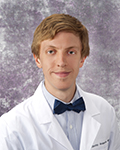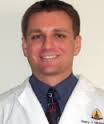 MedicalResearch.com Interview with:
Candace McNaughton, MD MPH
MedicalResearch.com Interview with:
Candace McNaughton, MD MPH
Assistant Professor
Department of Emergency Medicine
Vanderbilt University, Nashville, TN
Medical Research: What is the background for this study?
Dr. McNaughton: Heart failure affects more than 5 million Americans, is a frequent cause of hospitalization, and by 2030 is projected to cost as much $70 billion, so there is a lot of interest in helping patients with heart failure manage their condition. Health literacy, or the ability to use and understand healthcare information, is important for all patients, but the stakes are very high for patients with heart failure. Some people who are highly literate or highly educated in other areas may have difficulty reading and understanding healthcare information. Patients with lower health literacy skills may have difficulty
communicating with healthcare providers, navigating the healthcare system, recognizing signs of health decline, and knowing when and who to contact when they do become ill.
Medical Research: What are the main findings?
Dr. McNaughton: To our knowledge, this is the first study in which
health literacy was measured by nurses when patients were admitted to the hospital for heart failure. Nurses asked patients three questions about whether they have problems learning about their medical condition, their confidence filling out medical forms, and how often they have someone help them read hospital materials. With these three questions, information about the health literacy level of individual patients can be made easily available their healthcare providers.
We found that among 1,379 patients hospitalized for acute heart failure, those with low health literacy had 32% greater risk of death compared to patients with a literacy score of 10 or higher, even after adjusting age, sex, race, insurance status, education, other medical conditions, and how long they were in the hospital.
(more…)




















